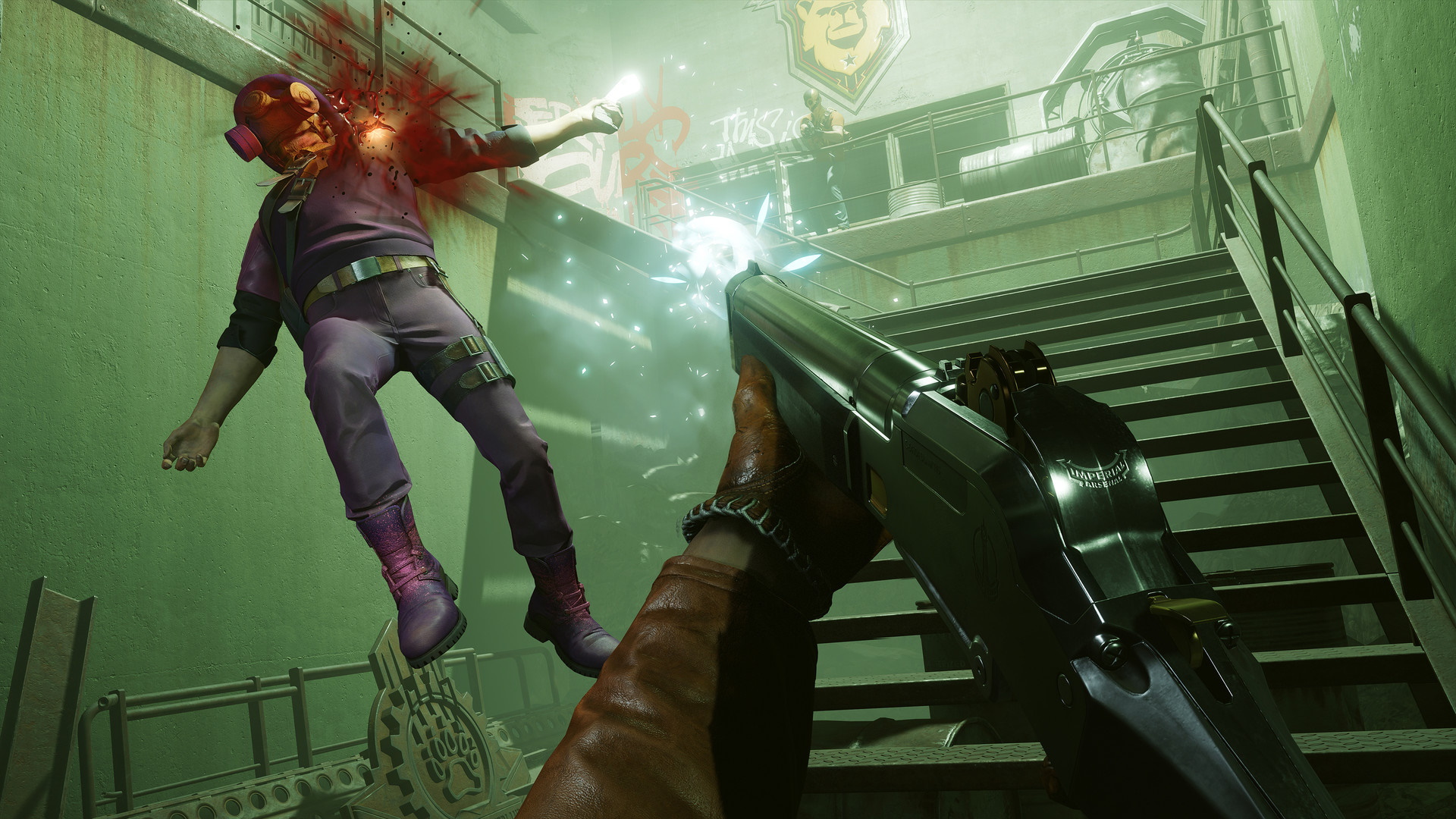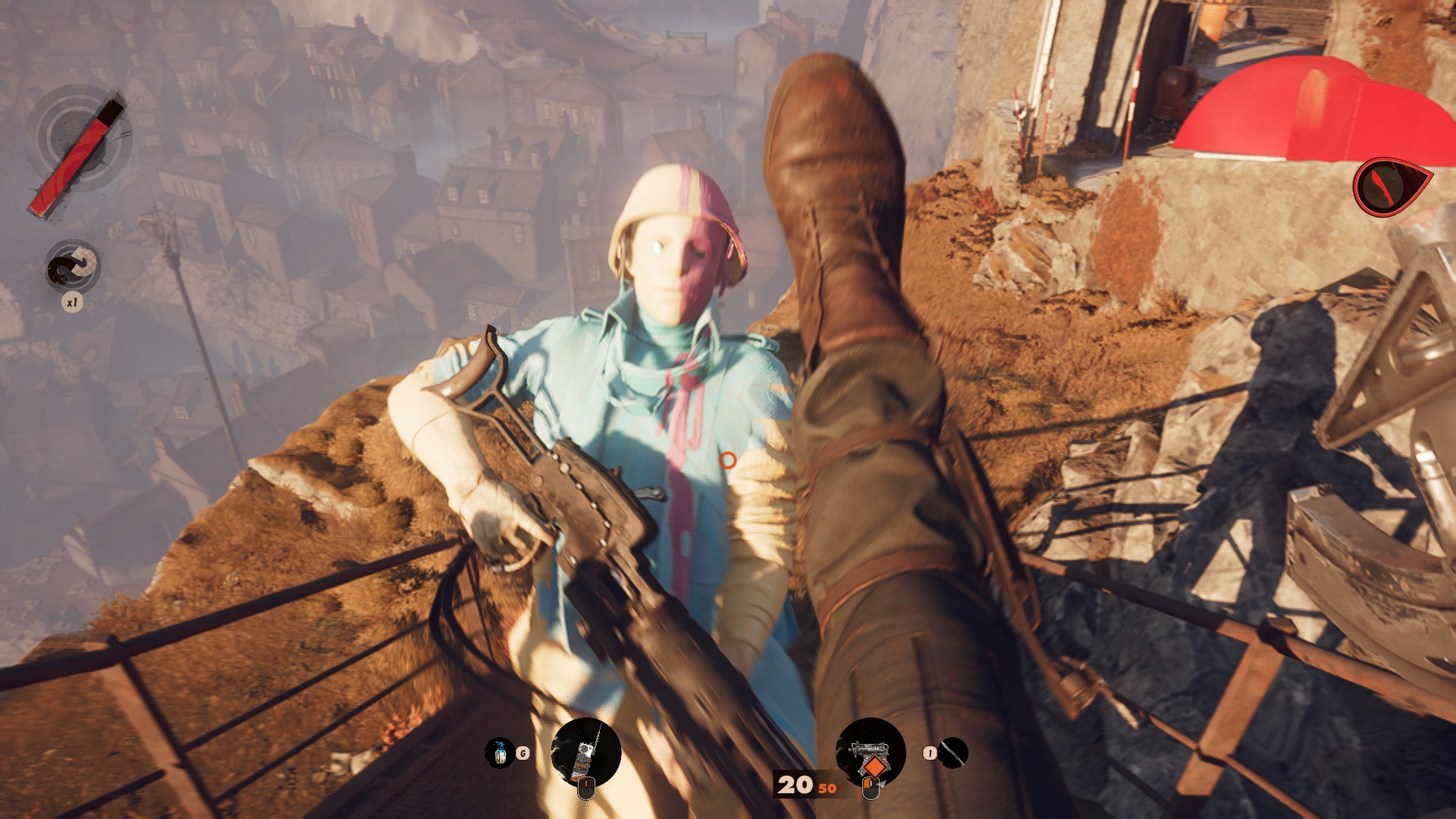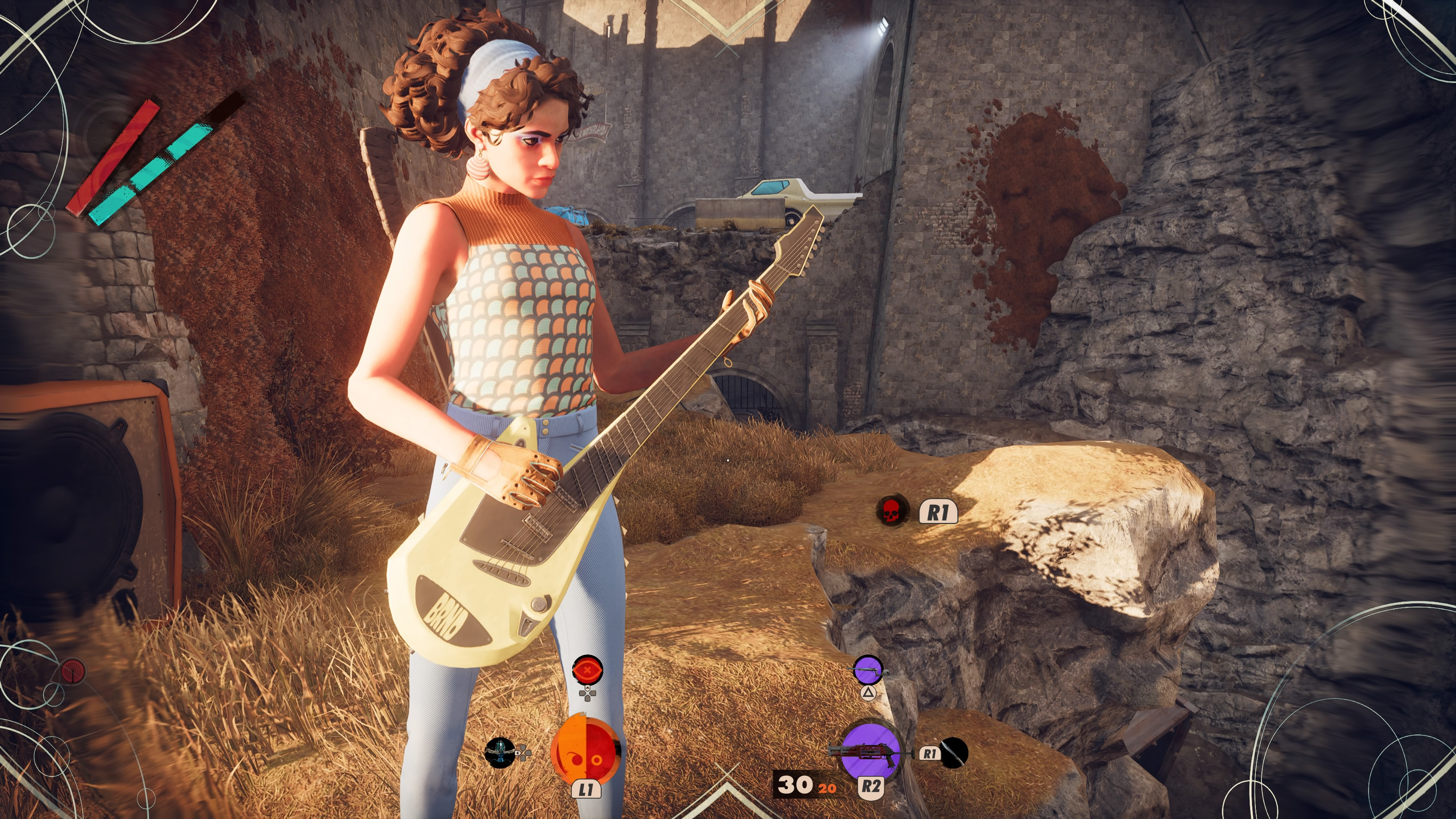How a martial art made Deathloop's invasions irresistible
"People sometimes wonder, is it a dance, is it a fight."

Dinga Bakaba is the game director of Deathloop, Arkane's brilliant, breakthrough FPS. He's a veteran of the Dishonored series, going back 11 years. But most importantly for our purposes, he's a martial arts teacher on the side. Specifically, Bakaba teaches capoeira.
"People sometimes wonder, is it a dance, is it a fight," he says. "But we say, ‘a game of capoeira,' and the act is playing." The boundaries of capoeira are intentionally blurred—it was first invented by African slaves in Brazil, as a way to practice fight moves under the cover of dancing and music. You might know it by the distinctive moveset of Tekken's Eddy Gordo, the human rotor whose unpredictable leg spins end with a foot to the face.
It's often less combative than that, though: in the courses Bakaba runs, capoeira partners tend to look more like lovers than fighters. Moves are mirrored, legs soar over heads, and despite the proximity, the hits never quite connect. It's mesmerising.
"When I arrived at my first capoeira class, they said it's a game," Bakaba says. "I asked them, ‘What are the rules?' And they looked at me like, ‘That's for you to figure out.'"

Capoeira can be combat; it can be strategy; it can be exhibition. But brilliantly, the nature of the game isn't determined beforehand. Instead it's communicated wordlessly between the players.
"It's not choreographed," Bakaba says. "It's entirely a dialogue, with attacks, counterattacks, acrobatics, and body expression." You could just as easily apply that description to Deathloop's invasions. Whenever two players are connected online—one taking the role of protagonist Colt, the other becoming his nemesis, Julianna—they're likely looking to kill each other. Their hands are glued to guns and grenades. But their first job is to feel each other out.
"The first thing to do is observe the partner," Bakaba says, slipping into the language of capoeira. "What their body movement tells us. It's the same with Street Fighter. If you look at the footsies, how people go front and back, stay crouched in their corner, or come jumping and dashing to get close, that tells a lot about what they are about, and you can start baiting. It's very martial arts."
Keep up to date with the most important stories and the best deals, as picked by the PC Gamer team.
Lightning Colt
Some Colt players treat invasions as a deathmatch—forgoing other goals to hunt Julianna as she skulks around the map. Others doggedly pursue their mission objective, PvP be damned. Many simply want to hack the antenna that unlocks the map's tunnels and sprint for the exit. If a Julianna player is to stand a chance of cornering Colt in one of Deathloop's huge levels, they have to watch closely, predict their partner's behaviour, and act accordingly.

"Are they aggressive? Are they sneaky? All this is interesting information," Bakaba says. "If they are avoiding enemies, then you know that if you make them panic, they have a chance of alerting those enemies. That will slow them down, put a marker on them, making it easier to chase them." Once the battle is joined, the mindgames continue as players feint and poke at each other. "You're always trying to trigger a reaction," Bakaba says.
It might sound markedly less benevolent than capoeira lessons. But since Deathloop launched, some players have managed to turn even Colt and Julianna's eternal fight into a dance. "It's all about player agency and how you want to engage with that Colt, to the extreme of helping them out," Bakaba says. "When you're playing as Julianna, there's no real objective besides making matches and having fun."
Invasions sit at the opposite end of the spectrum to Deathloop's campaign, which always tells you what to do and where to do it. "If we changed things around so that the multiplayer was very objective-driven, then you start having a right way to play, and that's not really what we wanted," he says. "It's interesting to think about where you need guidance, and where you can let players free to make up the rules and find their own thing."
Bakaba's next project is bound to wind up feeling a little like capoeira. "It's something that's part of me and how I look at interactions," he says. "It's a dialogue, always."
Jeremy Peel is an award-nominated freelance journalist who has been writing and editing for PC Gamer over the past several years. His greatest success during that period was a pandemic article called "Every type of Fall Guy, classified", which kept the lights on at PCG for at least a week. He’s rested on his laurels ever since, indulging his love for ultra-deep, story-driven simulations by submitting monthly interviews with the designers behind Fallout, Dishonored and Deus Ex. He's also written columns on the likes of Jalopy, the ramshackle car game. You can find him on Patreon as The Peel Perspective.

